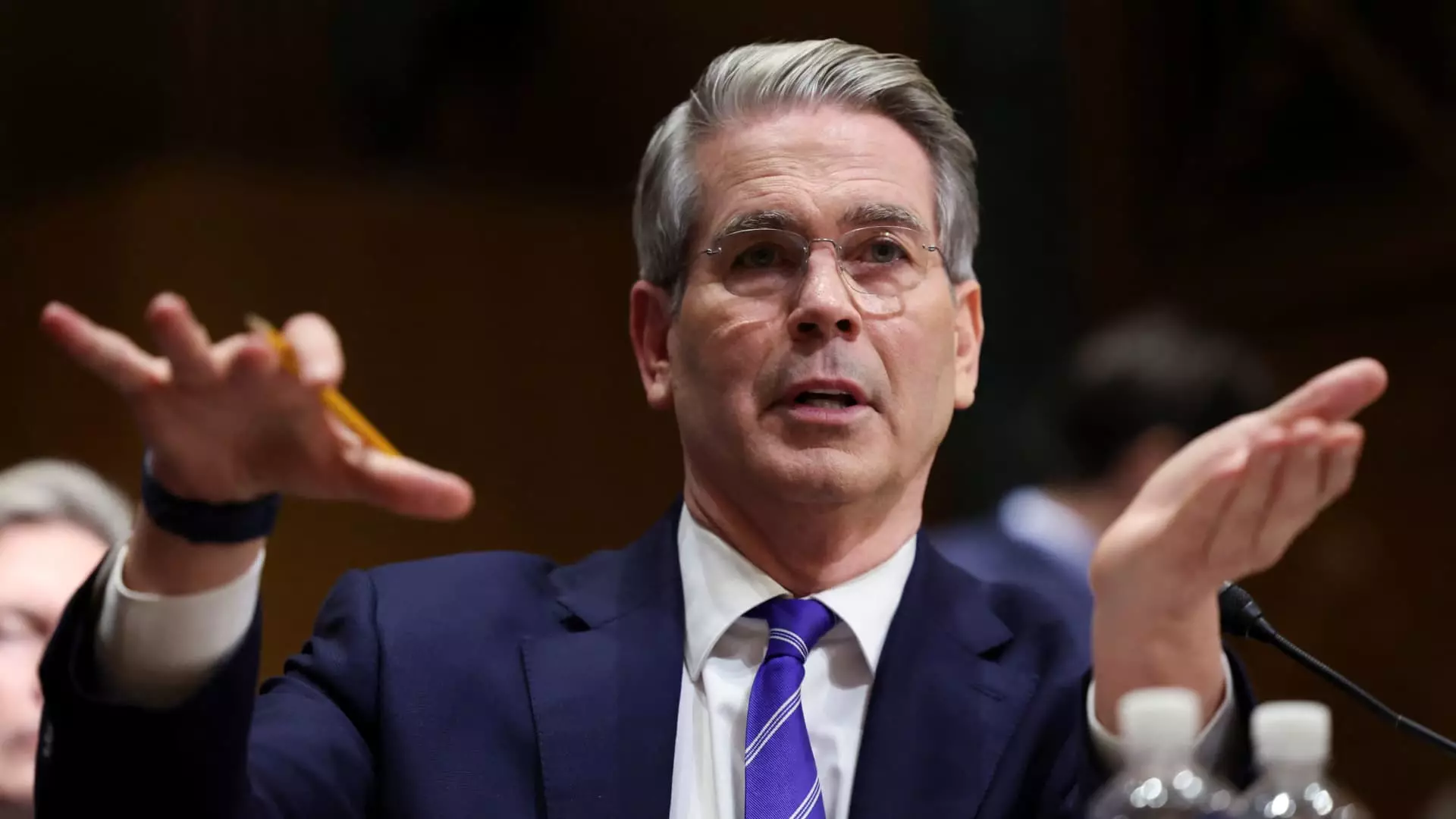In a world increasingly defined by interdependencies, the trade skirmishes between the U.S. and China can appear both reckless and shortsighted. Treasury Secretary Scott Bessent made a bold declaration regarding the economic war of tariffs, arguing that China’s aggressive posture is akin to “playing with a pair of twos.” Such sentiments raise questions about the long-term consequences of using trade policies as blunt instruments for negotiating power. While Bessent’s comments reflect a robust belief in the U.S.’s advantageous position, they simultaneously gloss over the complexities and ramifications of a multifaceted global economy.
The assertion that the U.S. has the upper hand hinges on a simplified understanding of trade balance. The reality is far more intricate; the strength of a nation’s economy cannot solely be boiled down to the ratio of exports to imports. While it is true that China exports significantly more to the U.S. than vice versa, this statistic serves as a mere snapshot of a much larger system that interconnects industries, jobs, and livelihoods. Bessent, confident in his proclamation, fails to acknowledge that such a “winning hand” may come with unexpected retaliatory strife.
Tariffs: A Double-Edged Sword
The administration’s decision to impose reciprocal tariffs on China and other nations is rooted in a strategy of negotiation. Yet, this approach raises eyebrows. Tariffs—not merely punitive measures—function as financial tools designed to reshape industries and influence consumer behavior, all while inadvertently raising costs for American consumers. This intricate dance can easily spiral into a tit-for-tat escalation, alienating potential partners who might otherwise be allies in reducing global trade barriers.
The hope, as expressed by Bessent, is that imposing these tariffs will compel countries like Japan and others to the negotiating table, ultimately leading to favorable agreements that restore American manufacturing and jobs. However, one must interrogate the feasibility of this optimistic outlook amidst rising tensions. As China declares its intent to “fight to the end” on tariffs, a dangerous cycle is birthed: economic nationalism threatens to overshadow rational discourse, leading to reverberations that echo well beyond trade—as nationalistic fervor fuels discord at multiple societal levels.
The Illusion of Symmetry Through Tariffs
Bessent’s vision puts forth the idea of a “tariff wall” breeding both revenue and jobs, a goal that sounds appealing in theory. However, the expectation that tariffs will essentially serve as a “melting ice cube”—temporary yet lucrative—appears overly simplistic. As long as the industrial landscape is reshaped in response to tariffs, revenues may very well decline as businesses innovate and shift resources. Rather than relying on quick grabs for cash through duties, should the U.S. not rather invest energies into creating sustainable growth and facilitating free trade that genuinely holds up to quality standards?
The talk of 70 nations standing ready to negotiate offers a temporary pause in economic hostilities, yet skepticism remains. Nations operate not in isolation but within a fabric of obligations and relationships. Continual threats and retorts risk damaging these relationships irreparably, potentially leading to fissures in international cooperation that are hard to mend. The consideration of nontariff barriers, such as currency manipulation and other covert practices, complicates these negotiations, as Bessent astutely recognizes. Addressing systemic issues requires more than a singular focus on tariffs; it necessitates comprehensive reform in trade practices and policies.
The Reality of Economic Isolationism
President Trump’s vision of restoring American manufacturing is undeniably ambitious but fraught with peril. It approaches a mindset of economic isolationism that could alienate the U.S. from global supply chains and strategic alliances at a time when international cooperation is more necessary than ever. The hope for openings in other markets alongside new American jobs cannot exist in a vacuum devoid of cross-border engagement.
If the current trajectory continues unchecked, it risks placing political ideology over pragmatic economic strategy. The scoreboard may show victories in tariff negotiations, but the broader landscape requires a deeper interrogation of what those victories ultimately yield. A pivot away from working collaboratively within the global economy could leave both consumers and manufacturers to bear the brunt of calculated poker games played at the expense of genuine economic stability and progressive partnerships.
As the U.S. navigates these turbulent waters, it remains critical to evaluate whether current strategies align with a vision that promotes inclusive, long-term economic success rather than temporary triumphs bolstered by misguided bravado.


Leave a Reply